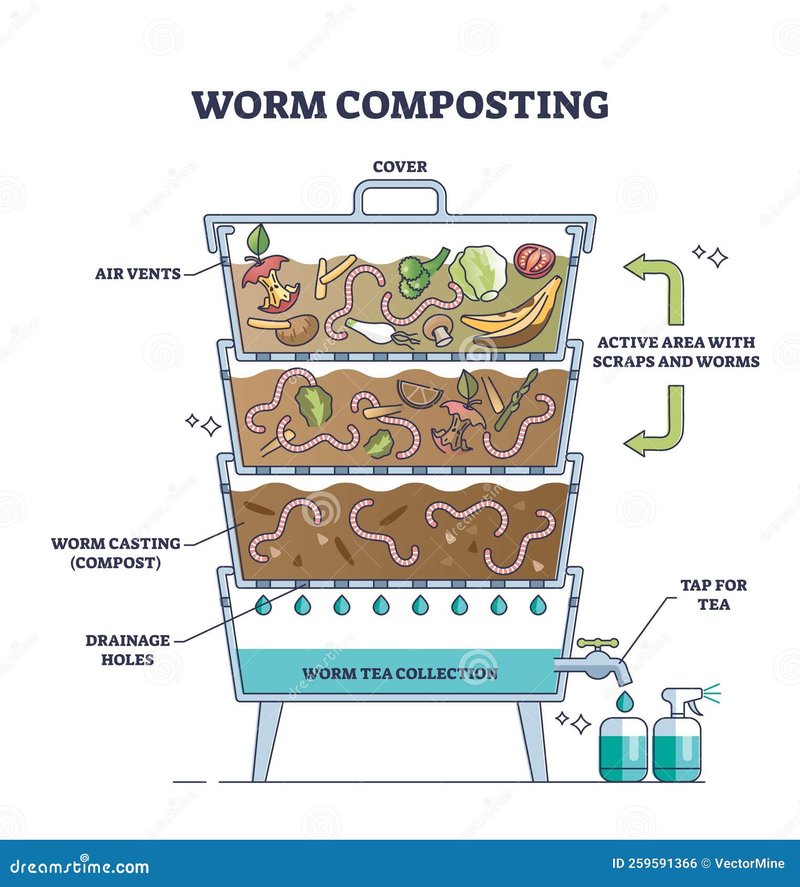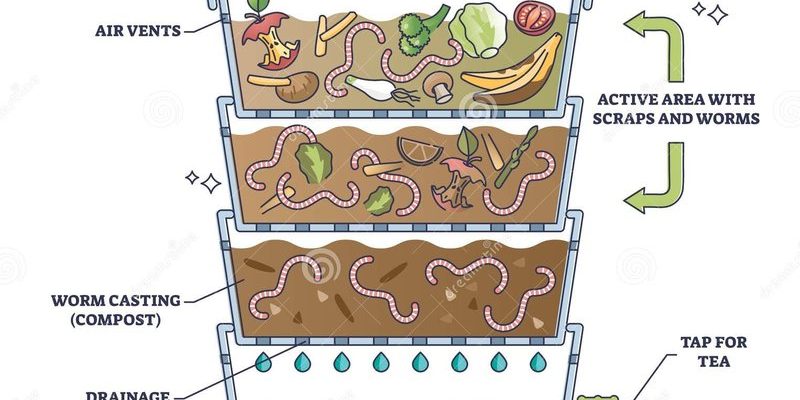
Worm bins are a great way to recycle organic waste, and they’re surprisingly easy to manage. You might be wondering, though, just how beneficial (or not) these wriggly creatures are for our environment. Are they simply composting machines, or do they have a more significant impact? Let me explain some of the ecological benefits and drawbacks of having these worm bin worm populations at home.
What Are Worm Bins?
Before diving into the pros and cons, it’s essential to understand what a worm bin is. Simply put, it’s a container filled with bedding materials like shredded newspaper or coconut coir, where worms live and do their magic. Most household worm bins use red wigglers (Eisenia fetida), a type of earthworm that thrives in composting environments. Think of it as a cozy condo for worms—complete with food and a safe home!
Setting up a worm bin isn’t complicated. You can find various models on the market, from simple DIY options to stylish products like the Worm Factory 360. Just remember to keep your worm friends happy by providing them with the right mix of food scraps and maintaining a suitable moisture level. It’s like caring for a small pet—just without the barking or meowing!
Benefits of Worm Bin Worm Populations
1. Nutrient-Rich Compost
One of the primary benefits of having a worm bin is the creation of vermicompost. This nutrient-rich compost is full of beneficial microorganisms and enzymes. When you use it in your garden or houseplants, you’re giving them a natural boost, helping them grow stronger and healthier. It’s like giving your plants a delicious, nutritious smoothie!
The best part? Vermicompost also improves soil structure, allowing for better water retention and drainage. Healthy soil means happy plants. Plus, you’re reducing waste—what’s not to love about that?
2. Waste Reduction
Did you know that nearly 30-40% of our waste is compostable? A worm bin can significantly reduce the organic waste that ends up in landfills. Instead of tossing your fruit peels and coffee grounds to rot, you can feed them to your worms. In turn, they’ll transform this waste into something valuable.
By recycling your scraps, you’re reducing greenhouse gas emissions. Landfills produce methane, a potent greenhouse gas. By keeping those scraps out of the trash, you’re playing your part in the fight against climate change.
3. Improved Soil Health
Worms are nature’s tillers. When they burrow through the soil and their castings (worm poop) mix in, they aerate it and create channels that allow water and nutrients to reach plant roots more efficiently. This process enhances soil health, promoting a thriving ecosystem beneath the surface.
Effective soil leads to improved plant growth. So, if you’re passionate about gardening, adding vermicompost can be a game-changer. Your plants will thank you with diverse blossoms and an abundance of fruits!
4. Educational Opportunities
Worm bins aren’t just great for the environment; they’re also fantastic educational tools. If you have kids, involving them in worm composting can teach them about sustainability, biology, and responsibility. It’s a hands-on way to learn about ecosystems and the importance of recycling.
Observing worms in action can spark curiosity. You might find yourself discussing soil health over dinner or planning a mini-garden project together. There’s something rewarding about getting your hands dirty for a good cause.
Drawbacks of Worm Bin Worm Populations
1. Maintenance and Care
While worm bins are relatively low-maintenance, they still require some attention. If you forget to feed your worms or allow the bin to become too wet or dry, it can lead to unhappy worms, or worse, a stinky bin. Regular checks and adjustments are necessary, which might be overwhelming for busy folks.
Worms also have specific dietary needs. Not all food scraps are created equal. It’s essential to avoid acidic foods, like citrus or garlic, and meat or dairy, which can spoil and attract pests. Getting the balance right might take some practice.
2. Potential for Pests
Like any organic system, a worm bin is susceptible to pests. Flies and unwanted critters can make their way into the bin if it’s not properly managed. If you notice fruit flies buzzing around, it might be a sign you’re overfeeding or that your bin is too moist.
Keeping the bin covered and ensuring proper ventilation can help prevent these pesky visitors. However, some may find pest control a bit tricky, especially if they’re new to composting.
3. Space Limitations
Not everyone has the space for a worm bin. While some models are compact, you still need somewhere to keep it, ideally in a cool, dark area. If you don’t have outdoor space or a well-ventilated kitchen, you might want to reconsider. Compact options can help, but even tiny bins need room for air circulation!
If you’re in an apartment or a small studio, you might need to weigh the benefits against the drawbacks carefully. There are alternatives, like small countertop composters, but they’re different from the worm bin experience.
4. Limitations on What You Can Compost
Each worm bin has its limits with what you can toss in. While they thrive on vegetable scraps, coffee grounds, and shredded paper, not all organic waste is suitable. You can’t just dump everything in there and expect worms to handle it like a garbage disposal.
This restriction can feel frustrating, especially if you’re trying to compost as much waste as possible. Keeping a list of what’s acceptable can help, but it requires some planning. Don’t let this discourage you; just be mindful of the materials you use.
In the end, worm bin worm populations offer a unique blend of environmental benefits and challenges. They’re like a tiny ecosystem you can nurture right in your home. With their help, you can create nutrient-dense compost, reduce waste, and engage in meaningful educational experiences.
Yet, they also come with responsibilities and some limitations. If you’re up for the task, the rewards can be immensely satisfying. You’re not just creating compost; you’re fostering a small piece of nature and contributing to a more sustainable world. So, whether you’re a seasoned gardener or a curious beginner, consider giving worm bins a try. You might just find yourself falling in love with these wriggly little helpers!

